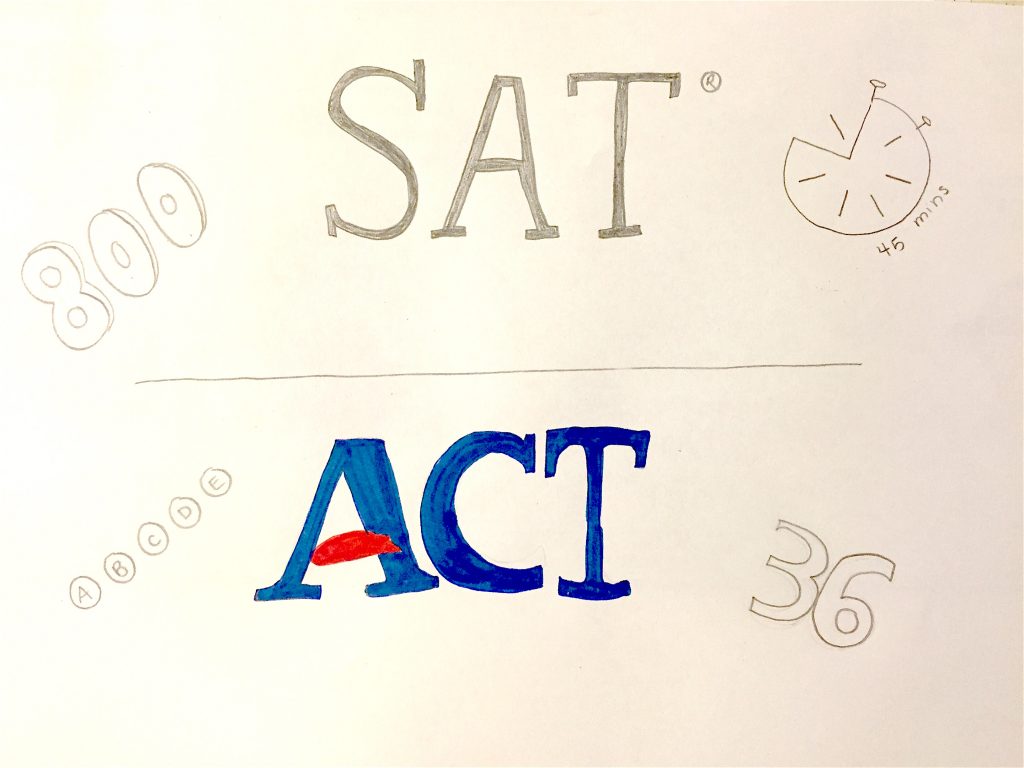If you’re currently a high school student, it’s very likely that you’ve either heard of, prepped for, or taken one of the two very popular standardized tests used for college admissions, the SAT or the ACT. The two tests are often dreaded by their takers due to the intensive prep that they require and the heavy burden they place on already stressed-out high schoolers. The numerical score (which goes up to 36 on the ACT and 1600 on the SAT) students receive is often an imperative part of their college application portfolio, meaning that getting a “good score” is something that juniors often worry about. Although both tests are weighted equally at most colleges, it is important to analyze the differences between the SAT and the ACT and to choose which test is best for you.
Many parents and students alike don’t really know the difference between the SAT and the ACT. The ACT became the most popular college admission exam around 2012, surpassing the once-dominant SAT. But just because the ACT is more popular doesn’t mean it’s the better or easier test; they have fundamental differences that are worth analyzing before you decide which test you’re going to take.
The ACT contains 5 parts: english, math, reading, science reasoning, and an essay (which is optional). The SAT encompasses all these sections but doesn’t include a science portion. The ACT science section tests its takers mainly on critical thinking skills, such as analyzing a graph or a set of data, and doesn’t require extensive science knowledge. The ACT is 3 hours and 40 minutes with the essay, and the SAT is 3 hours 50 minutes with the essay. The newest version of the SAT covers the majority of the math subjects that the ACT does (arithmetic, algebra, geometry, and trigonometry) but on the ACT you can use a calculator on all math questions whereas on the SAT there are both non-calculator and calculator sections.
Prepping for either the SAT or the ACT not only involves memorizing and practicing, but also preparing yourself for the time restrictions. One reason why some students choose the SAT over the ACT is that the SAT gives more time per question than the ACT; students who are not-so-great at time management are more likely to opt for the SAT since it gives more time for students to focus on the questions. “I felt the SAT was better suited for me personally because I have difficulty with time,” says junior Katherine Muccio, “after taking practice tests for both, I found I couldn’t even finish the ACT and that the SAT was the better option for me.” Also, the types of questions on both tests are often different. The ACT tends to focus more on strict knowledge, while the SAT assesses reasoning ability. This means that the questions on the ACT are more straightforward while the ones on the SAT need more time to be answered. “The questions on the ACT are more direct, and the overall content is easier for me”, says Virginia Morley, a junior at RHS who has prepared for both the ACT and the SAT.
It’s important to choose the test that plays to your strengths the most. If you’re good at managing your time and prefer direct questions, then the ACT is for you. But if you can more easily decipher reasoning questions, you’d probably prefer the SAT. By analyzing the different questions the ACT and SAT include (which you can find by searching online) you can help yourself get a better sense of which test is your best option and where your strengths lie.
Anne Probert
staff writer
Graphics: Amelia Chen

